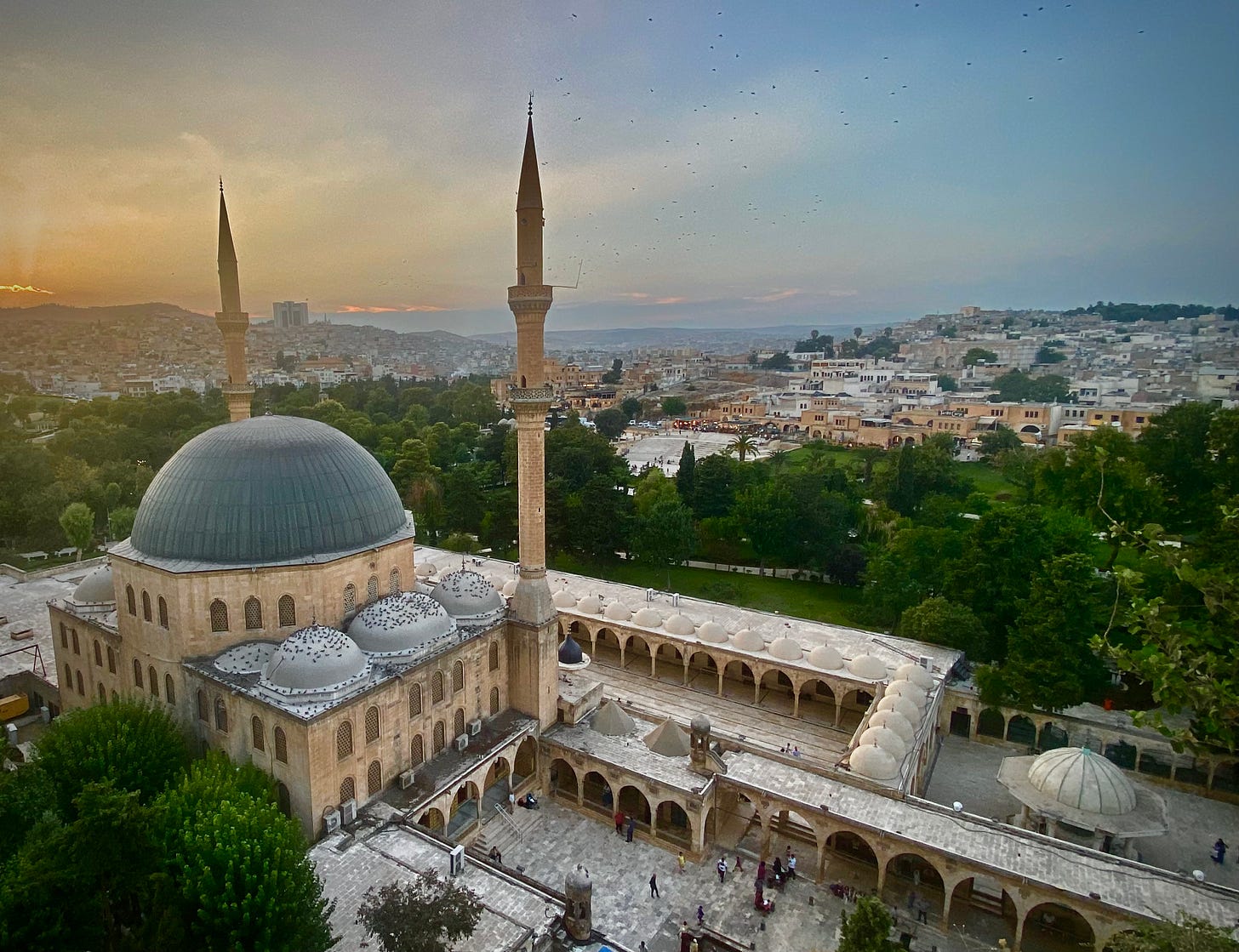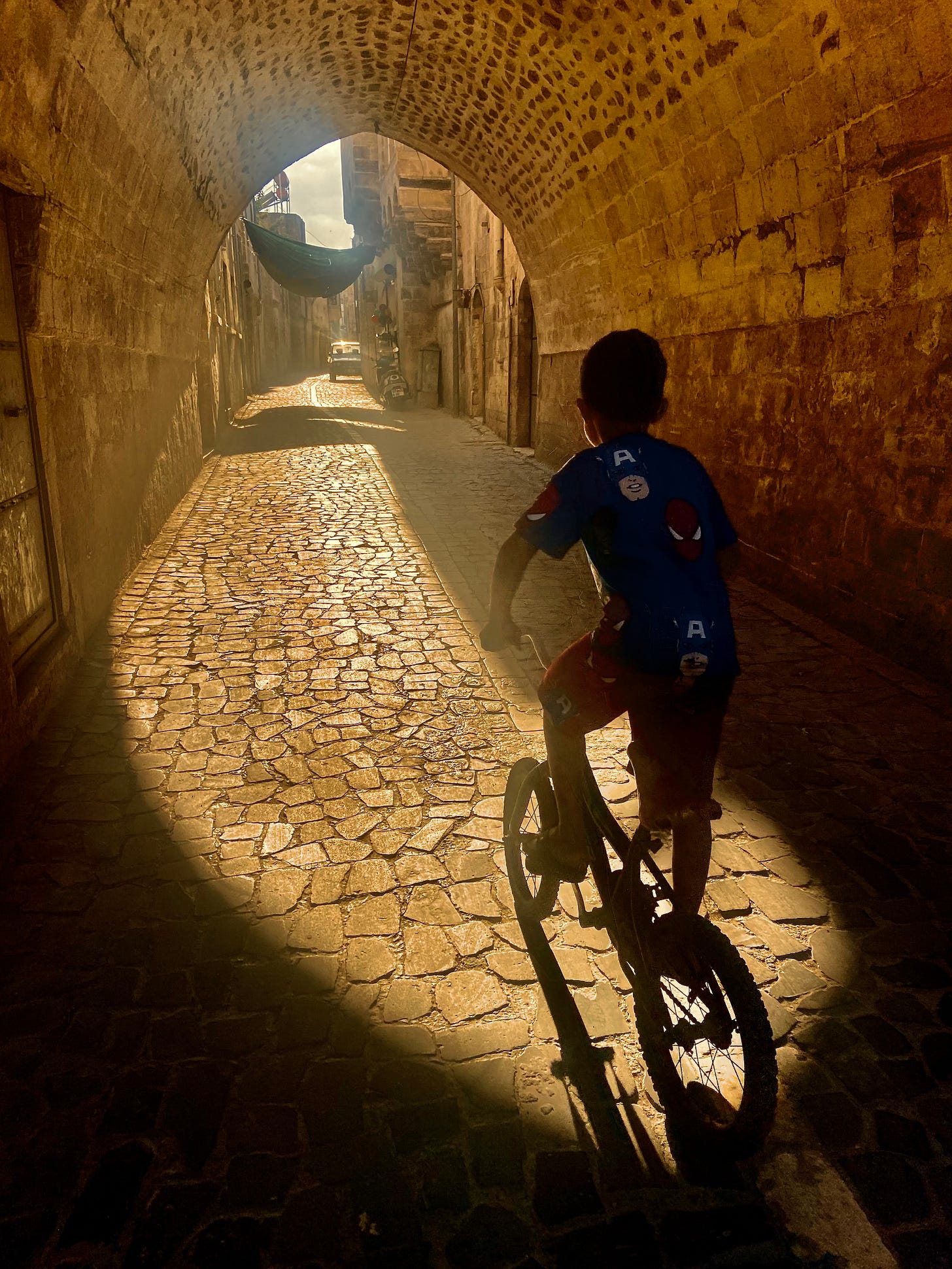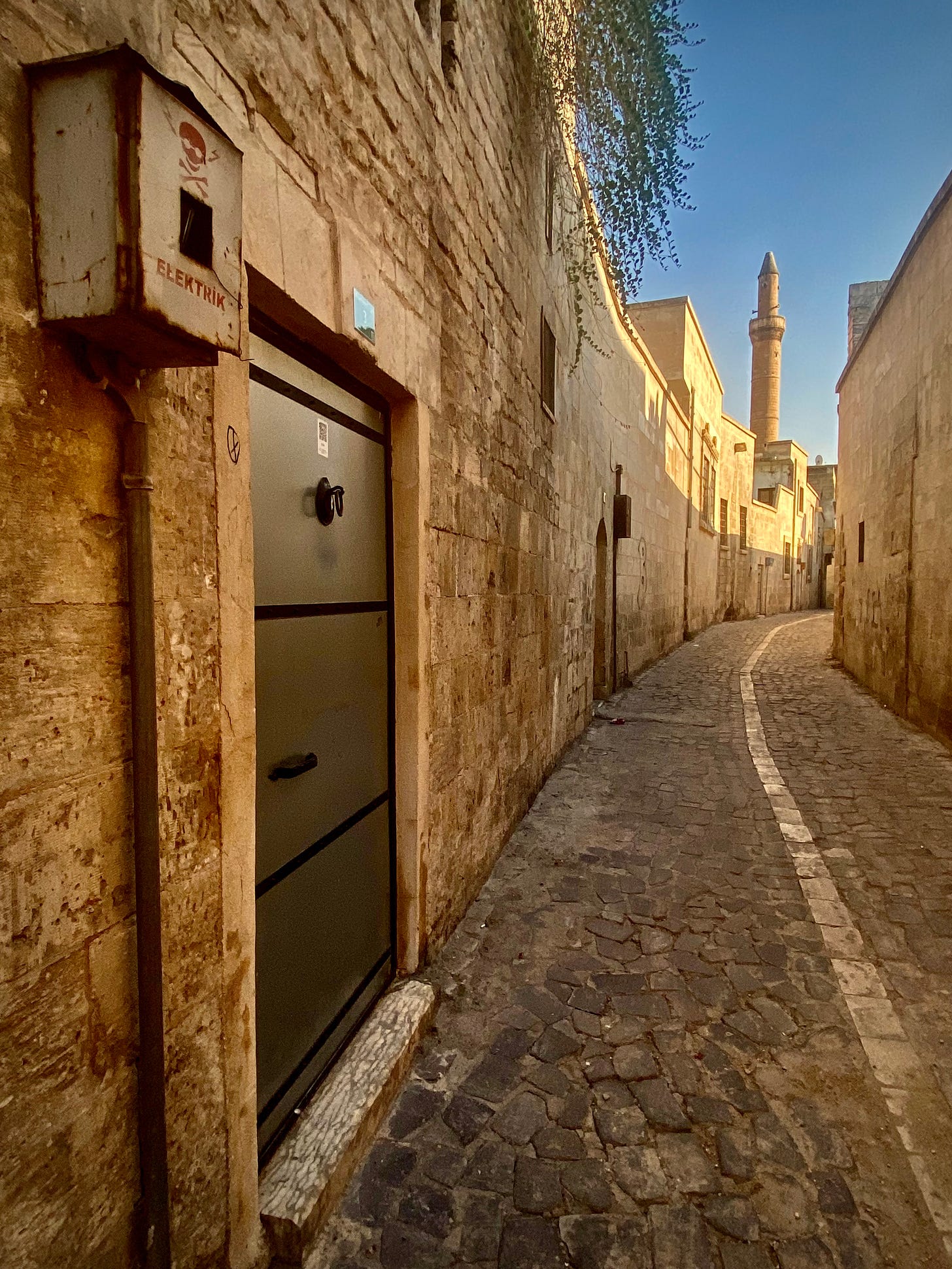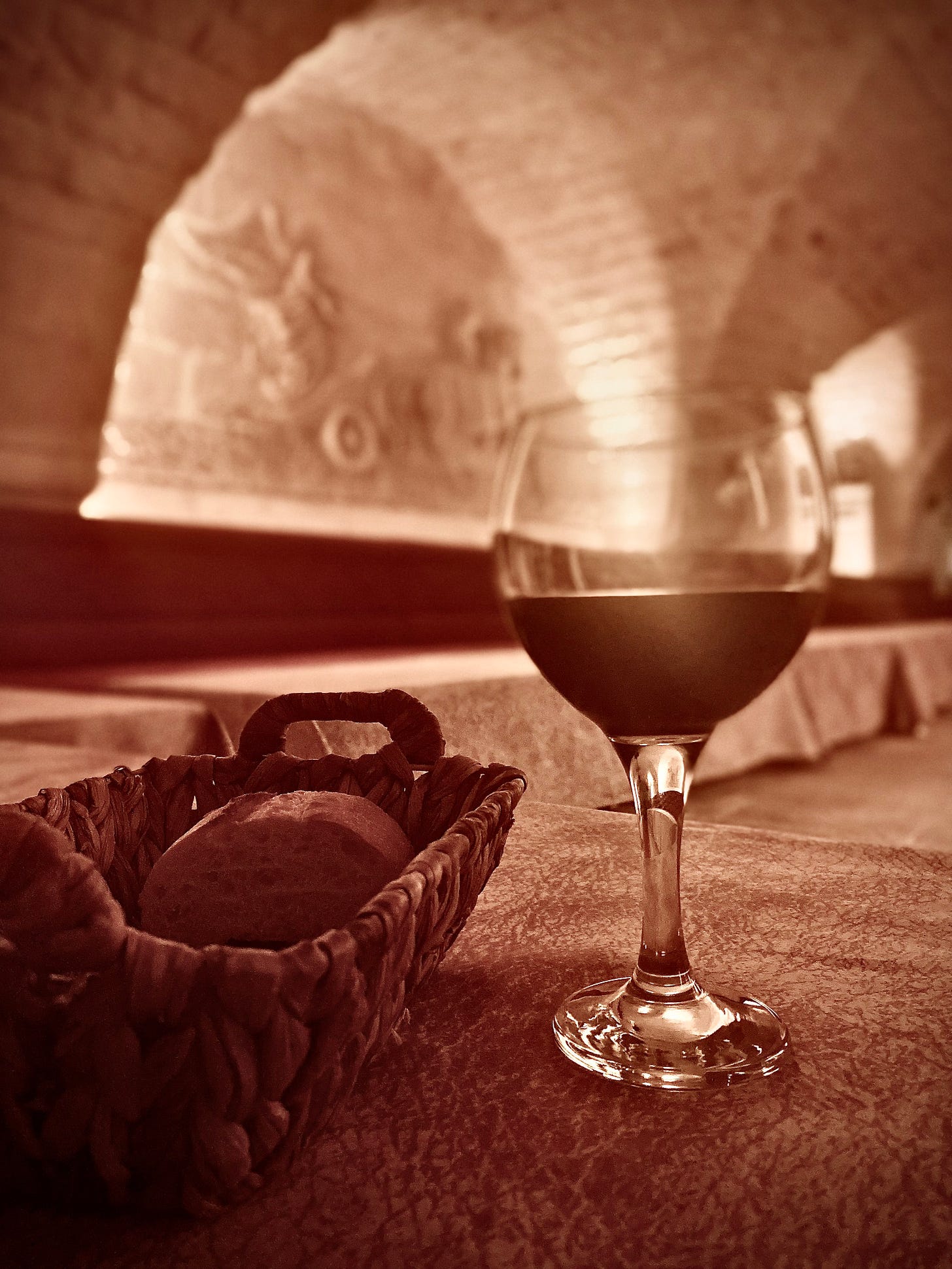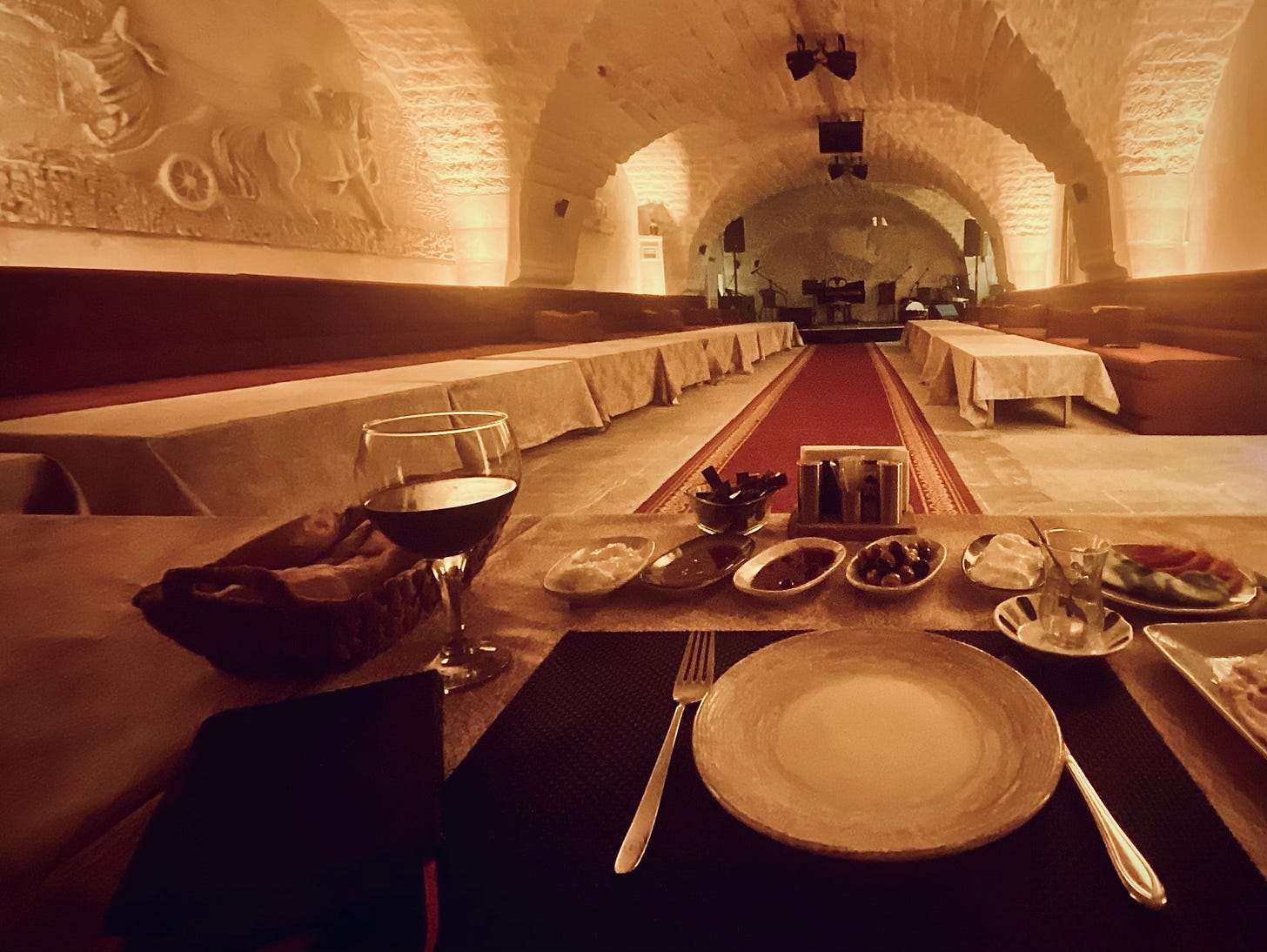Şanlıurfa: The Glorious Ur
The Hometown of Abraham and the City of Prophets
Ur Kaśdim (Hebrew: אוּר כַּשְׂדִּים) is mentioned four times in the Tanakh (Old Testament): Genesis 11:28, 11:31, 15:7; Nehemiah 9:7
The term "Kaśdim" is typically translated in English as "of the Chaldees." While the Tanakh does not explicitly state that Ur Kaśdim is Abraham's birthplace, it is commonly accepted as such. Genesis 11:27–28 also identifies Ur as the place where Abraham's brother Haran died and as the starting point for Terah's family, including Abraham.
In Genesis 12:1, after leaving Ur Kaśdim for Haran, God commands Abraham to depart from his native land (Hebrew moledet). Additionally, in Genesis 24:4–10, Abraham directs his servant to find a wife for Isaac from his moledet, leading the servant back to Haran.
In the New Testament, Stephen describes it as the "land of the Chaldeans" while recounting the story of Abraham in Acts 7:4.
While the exact location of ancient Ur of the Chaldees is not known today, there are two main contenders:
A Sumerian archaeological site near Nasiriyah in modern day Iraq
The ancient Assyrian and Seleucid city of Edessa, now known as Şanlıurfa
In my mind, the Şanlıurfa location aligns more logically with biblical references. If Terah and his family left Ur-Kasdim to journey to Canaan but stopped in Haran along the way, then Ur-Kasdim should be positioned to the north of Haran. Interestingly, if you leave Şanlıurfa and take a short trip south to the Syrian border, you arrive in an ancient site still known as Harran.
Before Şanlıurfa was Şanlıurfa (meaning “the glorious Ur”, the city was simply known as Urfa. The Turkish name, Urfa, comes from the earlier Syriac ܐܘܪܗܝ (Orhāy) and Greek Ορρα (Orrha), as the city was a significant center of Assyrian-Syriac Christianity. Today, one would hardly know that there was any Jewish or Christian history in this location as almost all of the previous churches and synagogues were converted into mosques when the Ottoman empire took over Turkey.
The Glorious Ur
I found myself in Şanlıurfa after a short visit to Gaziantep.
I cannot speak to the city as a whole as I found a room for rent in the old city and did not leave this area of town, except for a brief day-trip to Göbekli Tepe. The narrow winding streets of the old city in Şanlıurfa are charming and reminded me of the cobblestone streets of Jerusalem.
Of particular interest to me was an ancient fish pond (Balikligol in Turkish) just around the corner from my Airbnb. Over the years, the architecture has morphed in this location from markedly Jewish to Christian to Muslim.
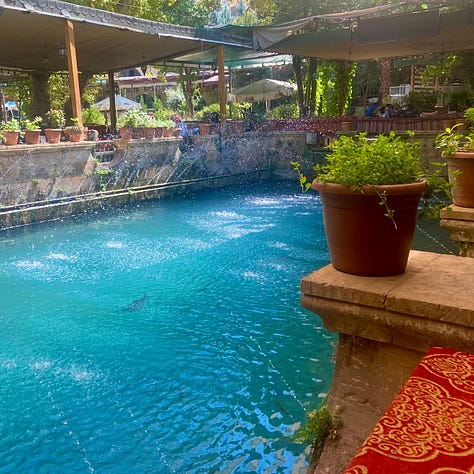
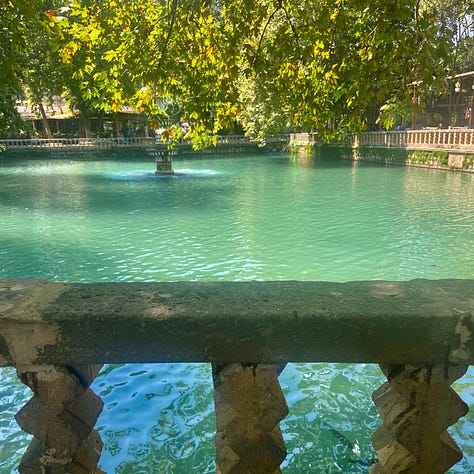
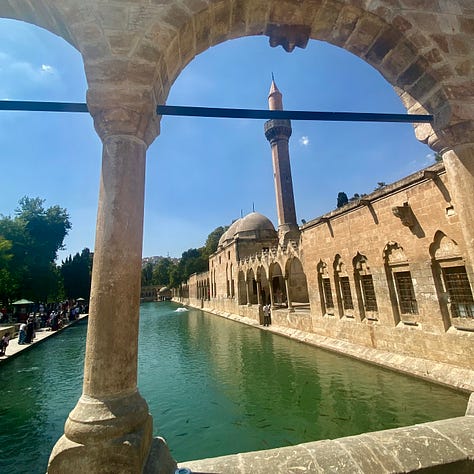
Today, most pilgrims that find themselves at Balikligol are there to visit the nearby cave where Abraham was supposedly born. I had no interest in visiting said cave as I inherently knew this fact was untrue. Interestingly, the grand mosque next to said cave was once a church and before that a synagogue.
Chasing Sunsets
On my final evening in Şanlıurfa, I found myself above the grand mosque chasing a sunset. As the minutes closed in on golden hour, my pace hastened, desperate to get to the lookout above the old city center.
As I hurried along, a man called out to me in Turkish, inviting me to join him for a cup of tea. I stopped.
In that moment, I paused to remember why I travel.
I was just blocks away from the lookout. And, while sites are often amazing, I no longer travel to check boxes. That’s boring. Rather, I travel to experience the unknown and, often, that comes through chance encounters with hospitable Turks and their families.
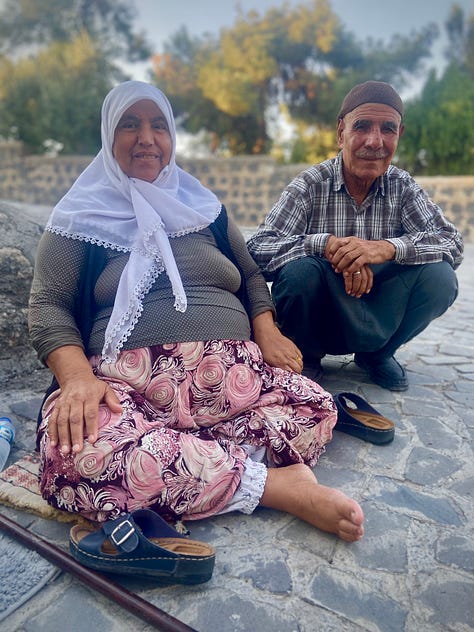
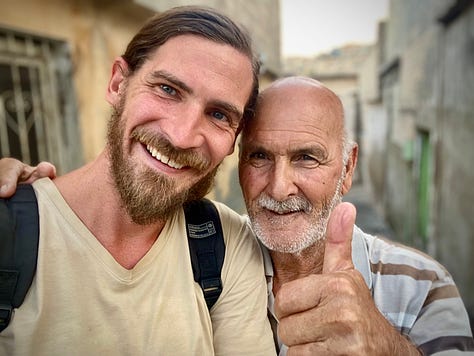
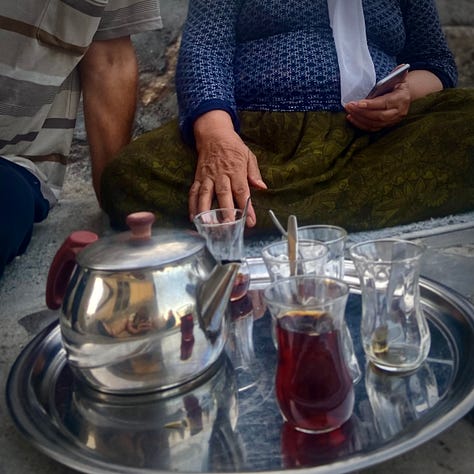
I set my bag on the stone step just outside his home and took a seat. He smiled, yelled to his wife inside and an elderly woman emerged with a silver platter. Soon, his entire family appeared out of nowhere and surrounded me. We joked and opined about the state of affairs in Turkey. He asked my particular stance on a few choice issues and I shared what I know from a Biblical perspective.
The sun set without me.
What could have been a lonely evening turned into one of my favorite memories in all of Turkey. Just a few days before, my Turkish jokes got me a free coffee outside the Gaziantep War Museum. Today, I’m laughing and carrying on with an entire family, all in Turkish.
I left that encounter filled with joy and impressed with my broken Turkish. My daily Duolingo habit seemed to be paying off.
Shabbat Shalom
It was Shabbat, and while I wanted to go out for a nice dinner, my desire for sleep won the mental battle, so I returned to my room and quickly drifted off to sleep.
I woke rested. As I was packing to leave, I heard a clear word. “Eat breakfast at Abraham Hotel.”
I had passed this hotel a few times over the last few days as my Airbnb was a few alley turns away. I knew nothing about the hotel, nor did I know if they served breakfast, but I went in faith.
The woman at reception asked if I had a reservation. “No, I’m not staying here. I’d just like to eat breakfast.” She looked puzzled. I repeated myself; she got on her walkie talkie. A few moments later a man in a suit appeared and asked me to follow him.
The suited man flicked on the lights as we entered an underground banquet hall. Before he took me to my private banquet, he guided me around a corner and pointed at something beneath a glass plate on the floor. He explained to me in Turkish about the importance of this glowing tunnel, but I did not fully understand.
Turns out, the most important archaeological find in all of Urfa was found at this exact spot in the Abraham Hotel. Remarkable. The hotel was built over this well that once housed a mysterious humanoid statue of “The Urfa Man”. Archaeologists postulate that this ancient statue (which supposedly dates back to the time of Gobekli Tepe) was likely dropped down the well when the city was raided to keep it safe.
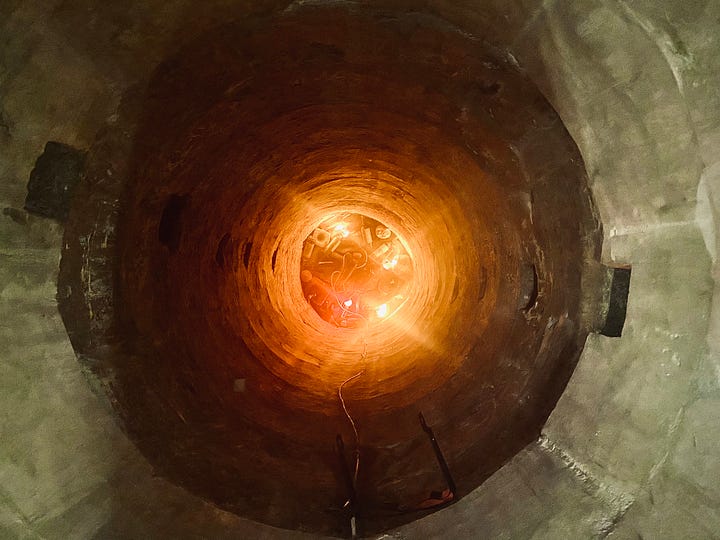
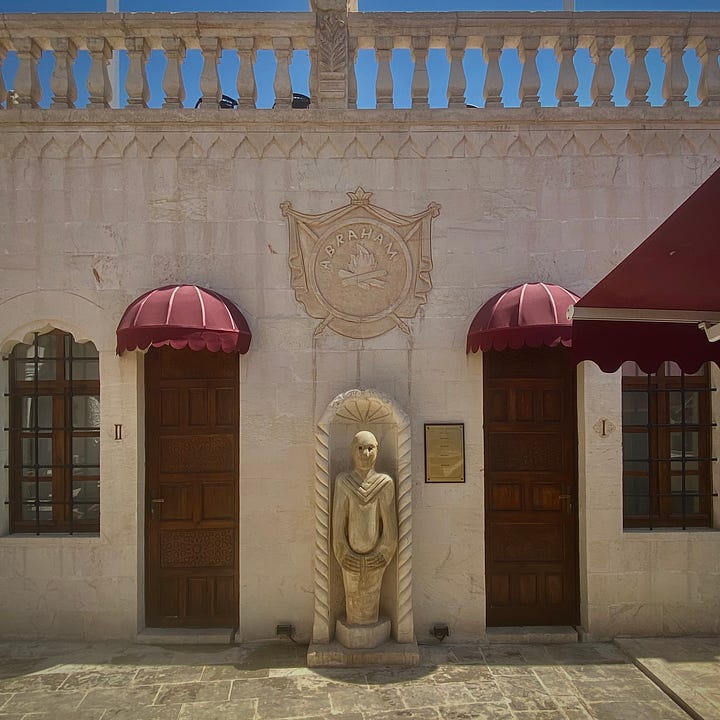
The waiter sat me down at the far end of the empty banquet hall.
Oddly, he asked if I would like bread and wine. Sure. After all, it’s Shabbat. As he left to fetch the wine, I scratched my head. What a peculiar thing to offer someone at 8am. Typically in this region, wine is an evening beverage… or at least late afternoon. Morning wine? Really?
He returned with a full glass of rather tart wine and a basket of warm bread. As I took communion in this place—praying ancient prayers in Hebrew—I felt the atmosphere shift around me. This was a significant moment.
I opened my Bible as I waited for the waiter to return with a bountiful breakfast feast. I read through the weekly. Torah portion and then skipped back to read through verses in Genesis about Ur of the Chaldees. Was I actually in this place?
As I dined in silence on my last morning in Şanlıurfa, I heard a most interesting word about a “White Carp” and the “Urfa Man”.
My intention was to capture the word in front of Balikligol (an ancient fish pond), but when I remembered to pull out my phone and record, I was already at the Şanlıurfa Bus Station on my way to Mardin.
This word about a White Carp is now vaulted away, to be released at a later date.



